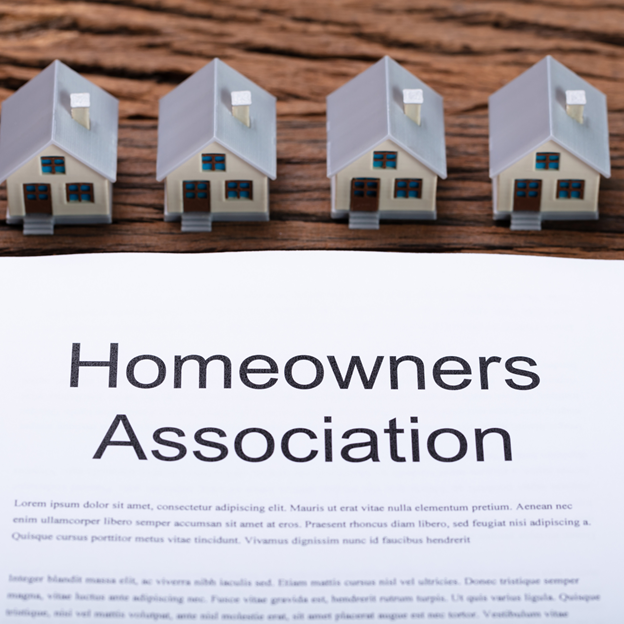Homeowners associations (HOAs) are a vital part of many neighborhoods as they provide benefits to their residents, including maintaining common areas, enforcing rules and regulations, and ensuring that the neighborhood remains aesthetically pleasing. For an HOA to deliver these benefits, it must have a set of governing documents. These documents outline the responsibilities and powers of the association, the Board of Directors, and the rights and obligations of homeowners. This article will explore each of the governing documents of an HOA and what information they contain.
Plat Map
A plat map is a type of map that shows the boundaries of a piece of property, along with any easements or other restrictions that may apply. For community associations, plat maps are an essential tool because they help the HOA determine where each property owner’s lot begins and ends and define any common areas shared by the community. Plat maps also show the location of any easements or rights-of-way that may exist on the property. This information is critical for ensuring that all homeowners use their property per the HOA’s rules and regulations.
Articles of Incorporation
A community association’s articles of incorporation is a legal document containing important information about the nonprofit corporation (the association). This includes the name of the association, its purpose, and the names of its founding directors. The articles of incorporation must be filed with the secretary of state in which the association is incorporated. In North and South Carolina, an association is not required to be incorporated; however, this is important because it gives the association legal status and certain benefits, such as tax advantages under IRS rules. Incorporation also protects the volunteer Board of Directors as they service the corporation, whereas they would be personally liable if the association is not incorporated.
Bylaws
A community association’s bylaws set the administrative rules and regulations for the association’s operation and its members’ rights and responsibilities. The bylaws will typically include information on the following:
- The governance of the association, including the specific powers and duties of the board of directors
- The membership requirements for the association, including any voting rights
- The meeting requirements for the association, including notice and quorum requirements
- The procedures for amending documents
This information is important because it ensures that the HOA operates efficiently as a business entity. For example, without clear bylaws in place, there could be confusion over who has authority to make decisions, how meetings are supposed to be conducted, and what happens if a board member resigns before their term is up or needs to be removed for misconduct. Having well-written bylaws helps prevent these issues from turning into big problems should they arise.
Declaration or CC&Rs
A community association’s declaration, covenants, conditions, and restrictions (CC&Rs), or in some cases, master deed, is an important document that outlines the rights and responsibilities of both the association and the homeowners. This document includes information about maintenance requirements for the property, the architectural control requirements, and the assessments that are required to be paid by the homeowners. The CC&Rs also give the board of directors certain rights and powers, such as the right to enforce the association’s rules and regulations. Homeowners also have rights under the CC&Rs, such as the right to use and enjoy their property. It is important for both the board and the homeowners to thoroughly understand the provisions within the CC&Rs so that they can properly uphold their responsibilities.
Rules & Regulations
A well-functioning community association requires a clear set of rules and regulations. These rules govern residents’ permissible behaviors and help ensure the community’s peace. Unlike the declaration, which governs what can be done with the property, the rules and regulations are designed to address the day-to-day behaviors of residents. For example, an association may have rules prohibiting loud noises after a certain time at night. While these rules may seem trivial, they play an important role in preserving the quality of life in the community. Furthermore, it is important to understand that the rules and regulations are separate from the declaration and, in some cases, can be changed by the board. The rules, however, must have a basis of authority derived from the covenants and cannot conflict with or extend beyond the restrictions in the covenants.
Where can you find these documents?
Depending on the local laws, the community association’s governing documents can be found in various places. The governing documents may be posted on a website if the association has a website. Usually, the covenants are available through the county’s public records. Articles of Incorporation must be filed with the Secretary of State and are available via this website. Suppose a professional management company manages the association. In that case, the governing documents may be available through them (CAMS clients can conveniently access copies of governing documents through their CAMS Connects Owner Portal). Regardless of where they are located, all residents must have a firm grasp of these documents. By understanding these documents, owners and board members can help to ensure that the association runs smoothly and efficiently.
The governing documents for a community association are essential and should be understood by anyone involved in the community as they outline how the community is set up and how it should be run, and most importantly - the specific use restrictions that property owners agree to abide by when they purchase the property. Board members, owners, and those buying properties within an HOA must familiarize themselves with these documents to ensure they understand the ins and outs of the community they’re joining.
Is your community getting the Trusted Guidance it deserves? Call us at 877.672.2267 or reach out to us on our website to learn more about the wonderful services CAMS offers.


